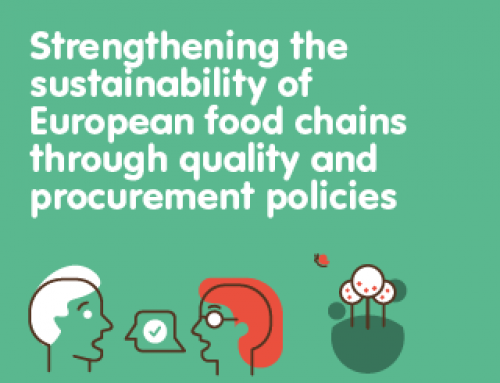Responsible Partner: UNED
Authors: A. Tregear, M. Sayed, M. Brennan, I. Colić Barić, M. Bituh, R. Brečić, D. Sinčić Ćorić, A. Razum, L. Gauvrit, M. Böhm, B. Schaer, K. Mattas, E. Tsakiridou, C. Karelakis, I. Papadopoulos, F. Arfini, A. Zangrandi, D. Del Rio, M. Donati, F. Scazzina, G. Lanza, A. Rosi, B. Biasini, J. Filipović, Z. Čeliković, I. Vuksanović
Date of Publication: August 2017
This report evaluates contract tendering and award processes for public sector food procurement (PSFP), with specific reference to school meals. For eight European countries (Croatia, England, France, Germany, Greece, Italy, Scotland and Serbia), Partners gathered information on the following, using a combination of desk research and exploratory interviews: (i) the nature and extent of school meal provision; (ii) the national and local policies and practices relating to PSFP; (iii) the transposition of EU Directive 2014/24 into national law; and (iv) the typical arrangements and processes for contract tendering and award for school meals.
In terms of policies and practices for PSFP, national ministries of health and education, or their equivalents, are most often the bodies responsible for devising policies and standards relevant to school meals, although in Germany and Italy policies are more regionally driven. The content of policies is strongly focused on health and nutrition, although France and Italy also have policies for school food (or PSFP more generally) relating to sustainability, supported by specific laws to encourage local and organic sourcing, waste reduction, etc. Currently, there is a lack of clear institutional ownership of policies related to school food in Serbia, and there are no specific health or nutrition standards for school food in this country.
In terms of contract tendering and award processes, it is noteworthy that municipalities and Local Authorities (LAs) are the common bodies responsible for these activities in England, Scotland, France and Italy. In England and Scotland in particular, joint purchasing groups, buying consortia and framework agreements are popular contracting vehicles, and contracts are typically three years in duration. In Croatia and Serbia, contracts are commonly handled at the individual school level, and 12 month cycles are common. In spite of these differences there are many similarities in the practical steps of contract tendering and awarding, particularly for contracts at similar value thresholds.






